TRUTH BEHIND JAPAN'S CONTAMINATED WATER
입력 2019.10.04 (15:04)
수정 2019.10.04 (17:36)
읽어주기 기능은 크롬기반의
브라우저에서만 사용하실 수 있습니다.
[Anchor Lead]
The Japanese government continues to insist that releasing contaminated radioactive water into the ocean will not cause any problems. KBS has confirmed that this in fact is not true. A document compiled by the Tokyo Electric Power Company says that in addition to tritium, which the Japanese government has already admitted, the contaminated water also contains other radioactive substances in amounts well above the permissible levels.
[Pkg]
Workers don protective gear before entering a dangerous zone at a nuclear power plant. This is where the so-called Advanced Liquid Processing System, or ALPS, for purifying radioactive water is located. Processed contaminated water is stored in some one thousand tanks in the vicinity of the nuclear plant. Its combined amount surpasses 1.1 million tons. Tokyo Electric Power Company proposed that radioactive water be released into the environment, because authorities have run out of storage space, as the amount of contaminated water grows by the day. The Japanese government claims the radioactive water only contains tritium, which also exists in a natural state in the environment.
[Soundbite] NAOKAZU TAKEMOTO(JAPANESE MINISTER OF STATE FOR SCIENCE & TECHNOLOGY POLICY(SEP. 17, IAEA GENERAL ASSEMBLY)) : "Water processed by the ALPS contains only tritium. All other radioactive substances were almost filtered out."
But is that true? KBS has obtained a report that TEPCO submitted to Japan's Ministry of Economy, Trade and Industry early this week. It says 82 percent of contaminated water from Fukushima has been found to contain cesium, strontium, iodine and other radioactive materials above the permissible levels. About 17 percent of the contaminated water was found to contain radiation more than ten times the annual permissible radiation exposure level, while another 7 percent contained more than a hundred times the permissible amount. We asked an official at the Tokyo Electric Power Company if that is true.
[Soundbite] MATSUYOSHI OYAMA(OFFICIAL AT TOKYO ELECTRIC POWER COMPANY) : "In the beginning, there were errors in the filter and some other systems that undermined the equipment's performance."
These experts point out that water from Fukushima nuclear power plants is radioactive waste of liquid type.
[Soundbite] KAZUYOSHI SATO(MEMBER OF IWAKI CITY COUNCIL, FUKUSHIMA PREFECTURE) : "They are trying to disguise contaminated water processed by the ALPS as "tritium water." They say it contains no other radioactive elements and is not contaminated at all."
Every time Korea or other countries bring up the issue of radiation in Fukushima, the Japanese government rebuts their claims, even accusing them of presenting false information.
The Japanese government continues to insist that releasing contaminated radioactive water into the ocean will not cause any problems. KBS has confirmed that this in fact is not true. A document compiled by the Tokyo Electric Power Company says that in addition to tritium, which the Japanese government has already admitted, the contaminated water also contains other radioactive substances in amounts well above the permissible levels.
[Pkg]
Workers don protective gear before entering a dangerous zone at a nuclear power plant. This is where the so-called Advanced Liquid Processing System, or ALPS, for purifying radioactive water is located. Processed contaminated water is stored in some one thousand tanks in the vicinity of the nuclear plant. Its combined amount surpasses 1.1 million tons. Tokyo Electric Power Company proposed that radioactive water be released into the environment, because authorities have run out of storage space, as the amount of contaminated water grows by the day. The Japanese government claims the radioactive water only contains tritium, which also exists in a natural state in the environment.
[Soundbite] NAOKAZU TAKEMOTO(JAPANESE MINISTER OF STATE FOR SCIENCE & TECHNOLOGY POLICY(SEP. 17, IAEA GENERAL ASSEMBLY)) : "Water processed by the ALPS contains only tritium. All other radioactive substances were almost filtered out."
But is that true? KBS has obtained a report that TEPCO submitted to Japan's Ministry of Economy, Trade and Industry early this week. It says 82 percent of contaminated water from Fukushima has been found to contain cesium, strontium, iodine and other radioactive materials above the permissible levels. About 17 percent of the contaminated water was found to contain radiation more than ten times the annual permissible radiation exposure level, while another 7 percent contained more than a hundred times the permissible amount. We asked an official at the Tokyo Electric Power Company if that is true.
[Soundbite] MATSUYOSHI OYAMA(OFFICIAL AT TOKYO ELECTRIC POWER COMPANY) : "In the beginning, there were errors in the filter and some other systems that undermined the equipment's performance."
These experts point out that water from Fukushima nuclear power plants is radioactive waste of liquid type.
[Soundbite] KAZUYOSHI SATO(MEMBER OF IWAKI CITY COUNCIL, FUKUSHIMA PREFECTURE) : "They are trying to disguise contaminated water processed by the ALPS as "tritium water." They say it contains no other radioactive elements and is not contaminated at all."
Every time Korea or other countries bring up the issue of radiation in Fukushima, the Japanese government rebuts their claims, even accusing them of presenting false information.
■ 제보하기
▷ 카카오톡 : 'KBS제보' 검색, 채널 추가
▷ 전화 : 02-781-1234, 4444
▷ 이메일 : kbs1234@kbs.co.kr
▷ 유튜브, 네이버, 카카오에서도 KBS뉴스를 구독해주세요!
- TRUTH BEHIND JAPAN'S CONTAMINATED WATER
-
- 입력 2019-10-04 15:08:04
- 수정2019-10-04 17:36:11
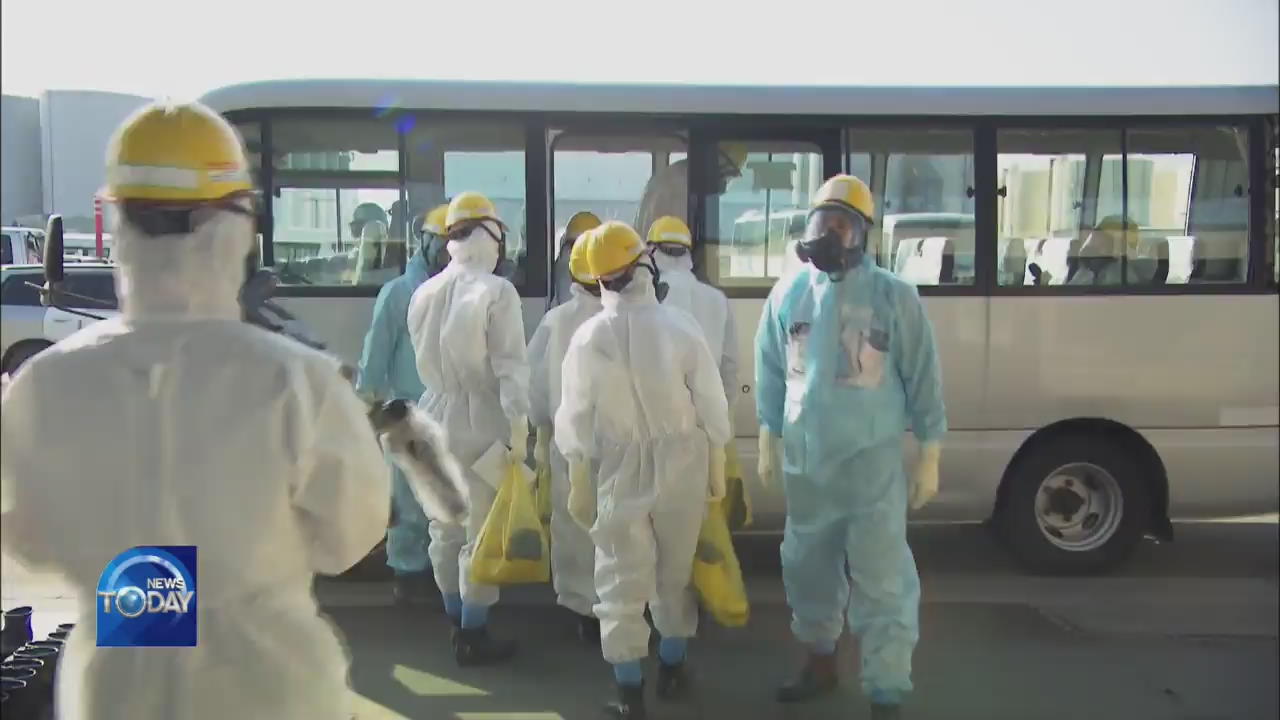
[Anchor Lead]
The Japanese government continues to insist that releasing contaminated radioactive water into the ocean will not cause any problems. KBS has confirmed that this in fact is not true. A document compiled by the Tokyo Electric Power Company says that in addition to tritium, which the Japanese government has already admitted, the contaminated water also contains other radioactive substances in amounts well above the permissible levels.
[Pkg]
Workers don protective gear before entering a dangerous zone at a nuclear power plant. This is where the so-called Advanced Liquid Processing System, or ALPS, for purifying radioactive water is located. Processed contaminated water is stored in some one thousand tanks in the vicinity of the nuclear plant. Its combined amount surpasses 1.1 million tons. Tokyo Electric Power Company proposed that radioactive water be released into the environment, because authorities have run out of storage space, as the amount of contaminated water grows by the day. The Japanese government claims the radioactive water only contains tritium, which also exists in a natural state in the environment.
[Soundbite] NAOKAZU TAKEMOTO(JAPANESE MINISTER OF STATE FOR SCIENCE & TECHNOLOGY POLICY(SEP. 17, IAEA GENERAL ASSEMBLY)) : "Water processed by the ALPS contains only tritium. All other radioactive substances were almost filtered out."
But is that true? KBS has obtained a report that TEPCO submitted to Japan's Ministry of Economy, Trade and Industry early this week. It says 82 percent of contaminated water from Fukushima has been found to contain cesium, strontium, iodine and other radioactive materials above the permissible levels. About 17 percent of the contaminated water was found to contain radiation more than ten times the annual permissible radiation exposure level, while another 7 percent contained more than a hundred times the permissible amount. We asked an official at the Tokyo Electric Power Company if that is true.
[Soundbite] MATSUYOSHI OYAMA(OFFICIAL AT TOKYO ELECTRIC POWER COMPANY) : "In the beginning, there were errors in the filter and some other systems that undermined the equipment's performance."
These experts point out that water from Fukushima nuclear power plants is radioactive waste of liquid type.
[Soundbite] KAZUYOSHI SATO(MEMBER OF IWAKI CITY COUNCIL, FUKUSHIMA PREFECTURE) : "They are trying to disguise contaminated water processed by the ALPS as "tritium water." They say it contains no other radioactive elements and is not contaminated at all."
Every time Korea or other countries bring up the issue of radiation in Fukushima, the Japanese government rebuts their claims, even accusing them of presenting false information.
The Japanese government continues to insist that releasing contaminated radioactive water into the ocean will not cause any problems. KBS has confirmed that this in fact is not true. A document compiled by the Tokyo Electric Power Company says that in addition to tritium, which the Japanese government has already admitted, the contaminated water also contains other radioactive substances in amounts well above the permissible levels.
[Pkg]
Workers don protective gear before entering a dangerous zone at a nuclear power plant. This is where the so-called Advanced Liquid Processing System, or ALPS, for purifying radioactive water is located. Processed contaminated water is stored in some one thousand tanks in the vicinity of the nuclear plant. Its combined amount surpasses 1.1 million tons. Tokyo Electric Power Company proposed that radioactive water be released into the environment, because authorities have run out of storage space, as the amount of contaminated water grows by the day. The Japanese government claims the radioactive water only contains tritium, which also exists in a natural state in the environment.
[Soundbite] NAOKAZU TAKEMOTO(JAPANESE MINISTER OF STATE FOR SCIENCE & TECHNOLOGY POLICY(SEP. 17, IAEA GENERAL ASSEMBLY)) : "Water processed by the ALPS contains only tritium. All other radioactive substances were almost filtered out."
But is that true? KBS has obtained a report that TEPCO submitted to Japan's Ministry of Economy, Trade and Industry early this week. It says 82 percent of contaminated water from Fukushima has been found to contain cesium, strontium, iodine and other radioactive materials above the permissible levels. About 17 percent of the contaminated water was found to contain radiation more than ten times the annual permissible radiation exposure level, while another 7 percent contained more than a hundred times the permissible amount. We asked an official at the Tokyo Electric Power Company if that is true.
[Soundbite] MATSUYOSHI OYAMA(OFFICIAL AT TOKYO ELECTRIC POWER COMPANY) : "In the beginning, there were errors in the filter and some other systems that undermined the equipment's performance."
These experts point out that water from Fukushima nuclear power plants is radioactive waste of liquid type.
[Soundbite] KAZUYOSHI SATO(MEMBER OF IWAKI CITY COUNCIL, FUKUSHIMA PREFECTURE) : "They are trying to disguise contaminated water processed by the ALPS as "tritium water." They say it contains no other radioactive elements and is not contaminated at all."
Every time Korea or other countries bring up the issue of radiation in Fukushima, the Japanese government rebuts their claims, even accusing them of presenting false information.
이 기사가 좋으셨다면
-
좋아요
0
-
응원해요
0
-
후속 원해요
0










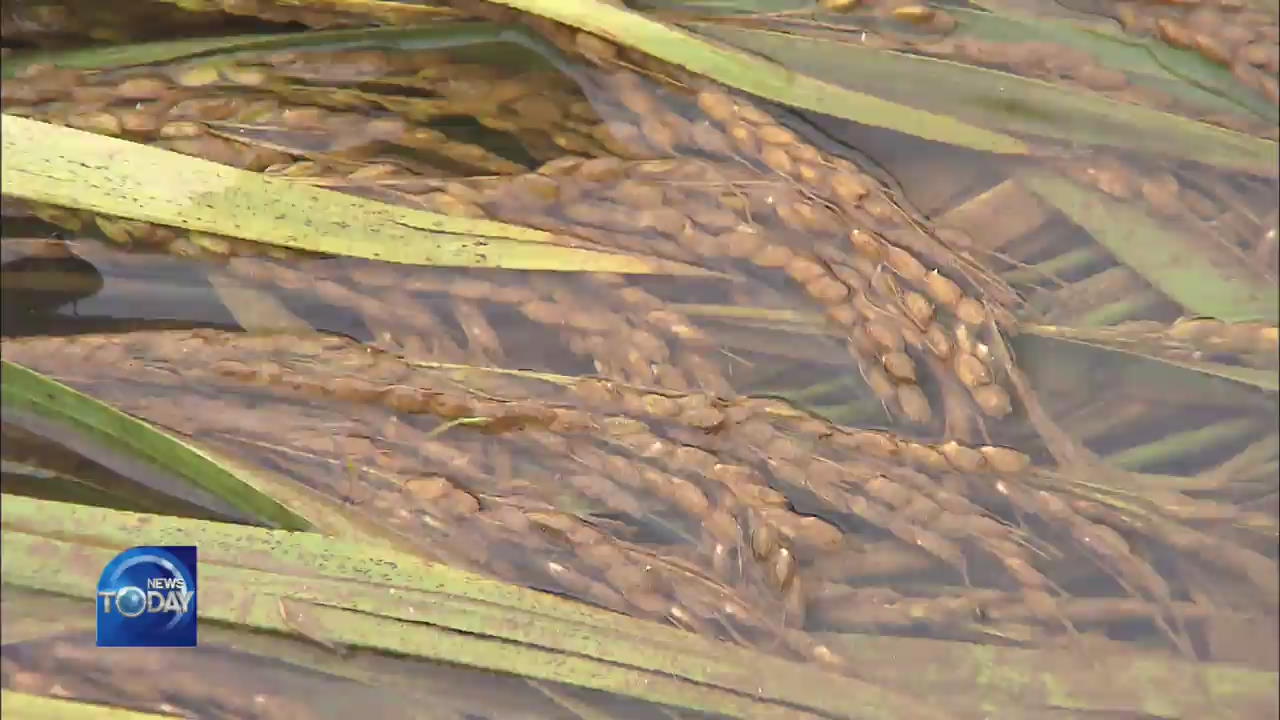
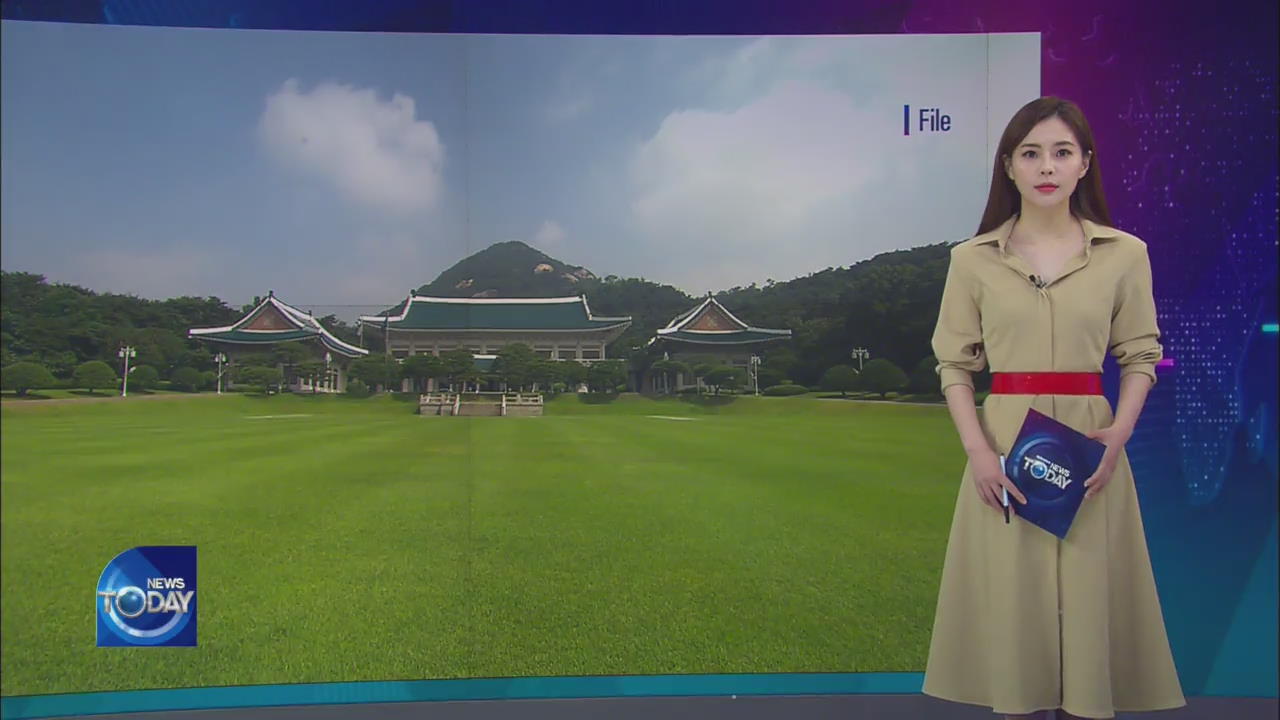
![[속보] 순직 해병 특검 “오늘 오후 박정훈 대령 참고인 조사”](/data/layer/904/2025/07/20250716_MUM2IP.jpg)
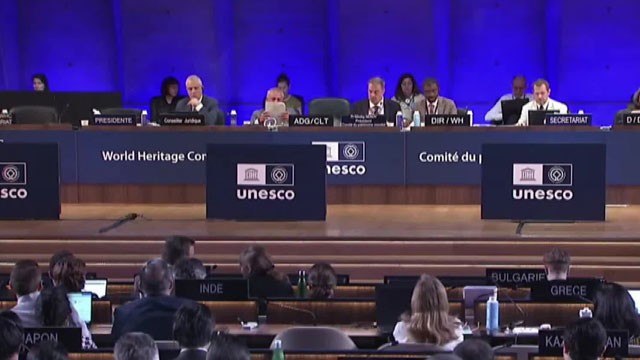
![[단독] 김건희 특검, ‘공천 개입’ 관련 김영선 전 의원 소환 통보…일정 조율 중](/data/news/2025/07/16/20250716_p7hDHF.jpg)
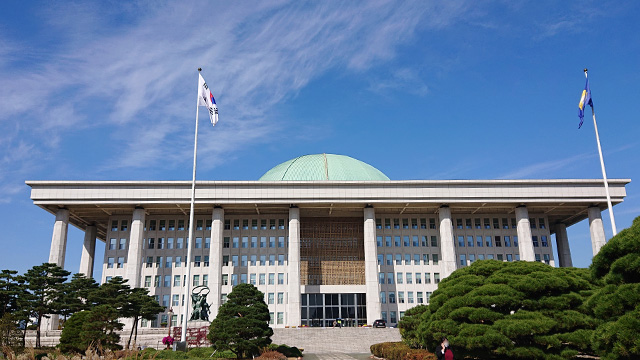

이 기사에 대한 의견을 남겨주세요.